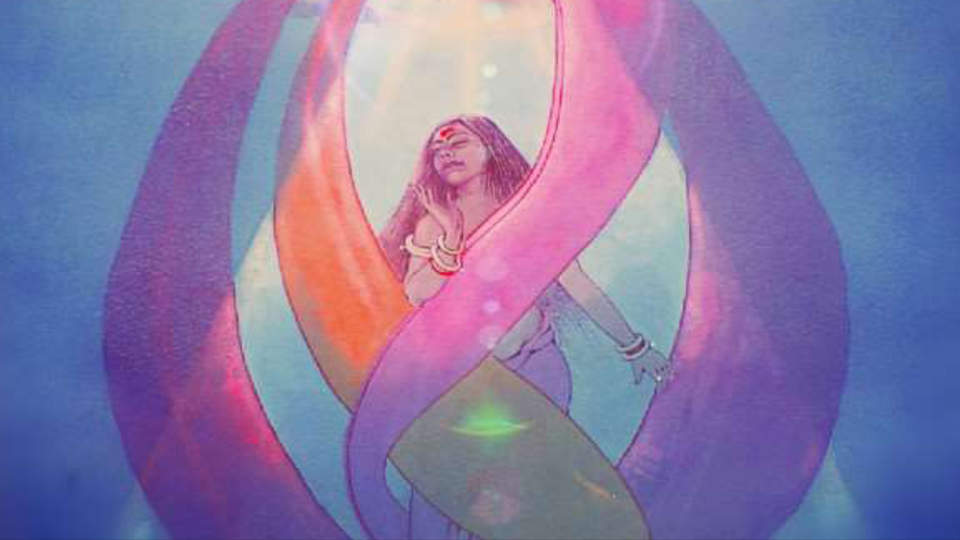Drawn from an episode in the Sanskrit epic The Mahabharata, Draupadi’s Arranged Marriage imagines the protagonist as a woman of modern feminist views faced with a polyandrous arranged marriage to five brothers.
The Mahabharata itself is a sprawling epic, probably compiled by the fourth century CE, based on sources that go back much further, to the ninth-fourth centuries BCE, perhaps based in part on events occurring in the tenth century BCE. The work, which exists in a multitude of versions, is estimated to be roughly ten times longer than the Iliad and Odyssey combined. This is a show for which some dramaturgical assistance to the audience would have been a boon.
The play has a simple structure. The entitled princess Draupadi (Bethany Rishell) – and as interpreted by Rishell, she is a princess in the figurative as well as the literal sense of the word – is made to marry Arjun (Pushkar Vartak) after he wins an apparently rigged archery contest. On arriving at Arjun’s home, she finds that her mother-in-law has insisted that she marry Arjun’s four brothers as well.
A series of scenes follow in which she rejects each man in turn. Arjun is defensive. Bheem (Raymond Hewlett) is sweet and romantic, but somehow lacking. Yudhisthir (Saleem Ahmed) is addicted to dice. Nakul (Paresh Parekh) is narcissistic and gay. Sadev (Virkum Mathur) is a corporate climber who cares only about money.
Draupadi’s first love, Karn (Sridhar Mirajkar, who also directed the play), returns to express substantial self-pity. Throughout, Draupadi expresses her dismay at being unable to make her own choices. Why, she asks again and again, can she not, as a woman, control her own destiny?
Draupadi’s story has been a frequent subject of novels, plays, and nonfiction books. There is a case to be made for a contemporary exploration of her life from a feminist perspective. But this tediously lengthy play doesn’t succeed in making that case.
Nishi Chawla’s script is stilted and repetitive, creating characters who, for the most part, are merely types. She resorts to a deus ex machina device to resolve a major problem for her protagonist at the end of the play. Most important, perhaps, in a play seeking to address women’s issues in an Indian context, she defines Draupadi almost exclusively in terms of her relationships with men.
The acting is amateurish at best, excessively presentational, with constant use of undisciplined gestures. The production projects pictures on the back wall as a major technical element, sometimes of empty rooms in Indian palaces and more often – and more mysteriously – of what appear to be photos taken by the Hubble Space Telescope. The projections are typically accompanied by annoyingly loud, booming, recorded narration by Ashok Sarin.
Two elements of the show deserve praise. Nalini Mirajkar’s costumes – emphasizing traditional Indian dress but with some modern elements – are colorful and often beautiful. Her classic dance early in the show was graceful and a complete delight. On the whole, however, Draupadi’s Arranged Marriage needs a great deal of work.
Running Time: One hour and 45 minutes, with no intermission.
Draupadi’s Arranged Marriage runs through July 29, 2018, at Westminster Presbyterian Church – 400 I St SW, in Washington, DC. For tickets, call 866.811.4111, or purchase them online.
Rating:





